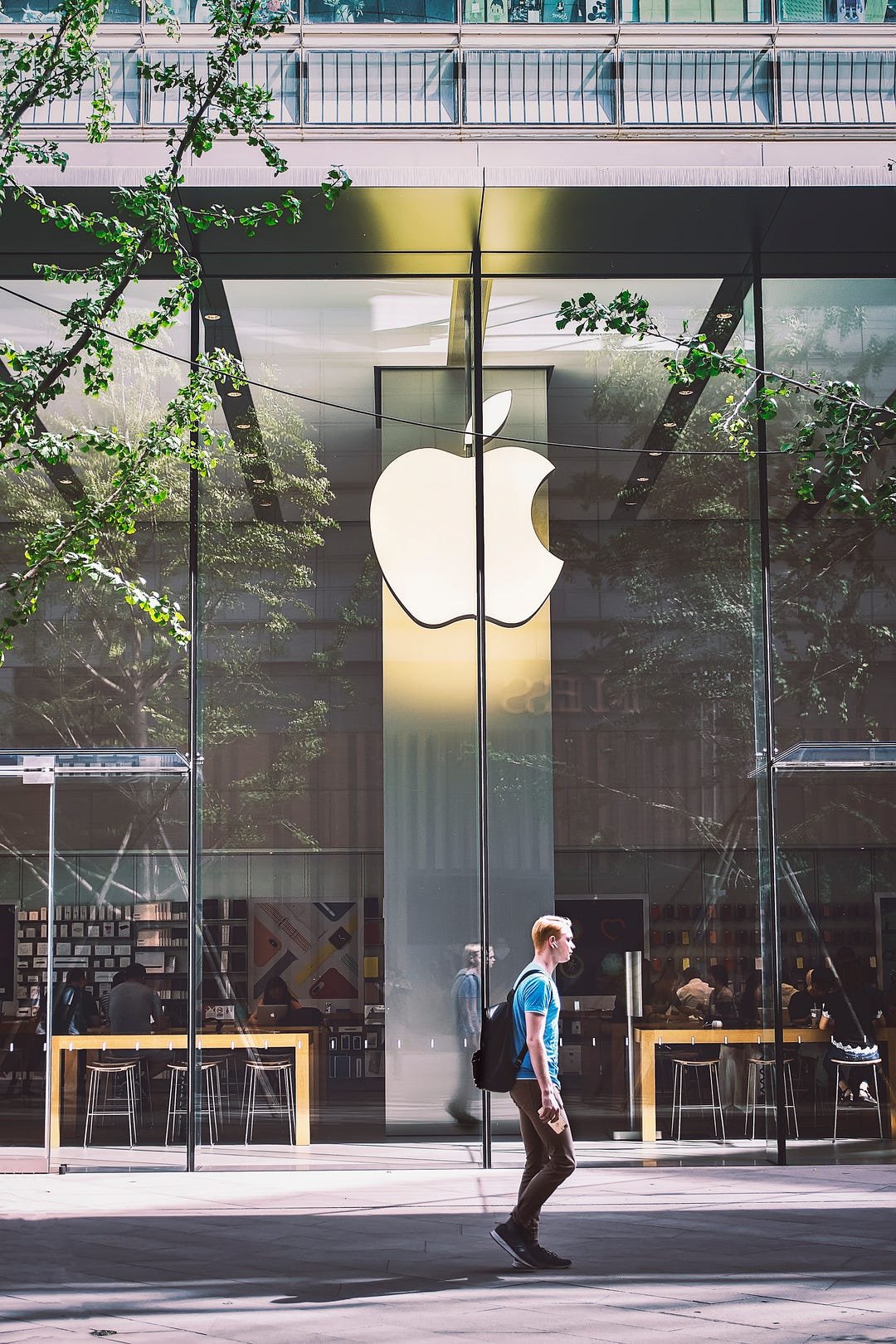In 2014, I graduated from the University of Pittsburgh with a Digital Media and Communications degree. I worked in social media marketing for a travel marketing agency and ended up getting let go a week after moving to Denver (after they assured me I’d be able to work remotely).
This was the beginning of my career transition. I thought I’d only be able to get out of the field I was in by getting a degree in something else, which is not the case, but that’s what I did.
A few months into grad school a friend got me a Data Science job at a six-person startup making $19 an hour. At the time this was the most money I had made so I was fine with doing it at that rate. It started off as data entry and gradually progressed to analytics, dashboarding, and regression and forecasting near the end. After a year of stressful work and going to school full-time, I quit my job with a full year of experience under my belt.
I wouldn’t suggest it, but I have worked myself to the bone and burnt out and 12/10 would not recommend. I took random jobs to pay the bills. Ever need a cracked screen fixed? I worked as a technician fixing phones at the Apple genius bar. I was able to balance part-time jobs and school, but I cut back on a LOT of my expenses. Almost a year after I left my DS burnt out and angry, I got a job at a drone for good startup and while I got “sweat equity” I was making $0 every two weeks from August until December when I left.
This is when I started working at a gas station. I worked overnights in a shitty part of town and calling the cops at 4 am to remove people from the story was common. I was making a whopping $9/hr with the only benefit being enough time overnight to get my grad school reading assignments done.

I’d come home after an overnight shift, take a nap, train models to recognize firearms, go to class, then work overnight again. It was hell, but the product I was working on could actually save lives. The difference in my willingness to sacrifice my sleep was knowing how many people of color have been murdered by cops with no recourse. While I was working a lot, it wasn’t 60–80 hours to prove to my boss I was worthy. I was doing it for free in hopes my work would reduce just one police killing.
The exception to my mentality against working yourself sick is if it’s directly for the greater good. 99.9% of jobs don’t get close.
I also had the benefit of having a job where I could work on other things. Aurora, CO is pretty slow at night and in winter I’d maybe see a single customer per hour. On average I spent 40 hours at work at the gas station, 10–15 hours on school (mostly done at work) and 20 hours on my ML job. The ML job was great for my resume, but working there wasn’t a complete necessity. There’s not a lot of cross over in what my day to day looks like now so it’s likely I’d still be in the role I’m in without that experience.
Here are some ways I made my career change:
Strategic education 🏫
I had the advantage of already having a Bachelor’s degree, but since it wasn’t technical I went back to school for my Master’s degree. I chose a school that was the least expensive I could find that wouldn’t require me to take the GRE (another $200 I couldn’t afford). I was wary of online masters programs so I was happy to see Regis University has a physical campus as well as a long history. I have some guidelines I use to help determine which online programs are legit and which are selling snake oil and hype.
In grad school, I took on additional loans so I could pay for books ($400–600/semester), rent and utilities ($500/mo), and food. knowing the average entry-level Data Science job I’d eventually get would be good enough to pay them back easily. When I started grad school in June 2016 I was on unemployment and itching to learn something new. I was able to bet on my major being a hot field with fairly low stress and high enough wages to live in an expensive city AND pay back any loans I took.
Networking 📶
I went to PLENTY of tech conferences free just applying for their student scholarships. Not all conferences restrict this to students. Many offer free tickets (and sometimes expenses paid) tounderrepresented folks and ones who just and afford conference tickets.
I went out of my way to go to meetup events when I just want to sit at home and watch tv. I made time to talk to people who seemed influential in the field while I absorbed the tools and techniques they used. Going to events and talking to people got me my first job as a Data Scientist. I met someone who would become a good friend at a networking event and they introduced me to the CEO of the company I worked as a Data Scientist for.
Cold emailing/messaging 🧤
What I love about machine learning especially is that people in Data Science and ML want to talk to other people about their work. I could fill binders for the messages I sent data people I admired on LinkedIn. There’s most definitely a right and wrong way to reach out (which I plan on covering in a blog post soon), but asking what their day to day is like or how the data science department is situated at their company can help you get insight on if it’s even a field you want to get into.
I had a cold outreach a template and just changed some details to match who I was reaching out to. Some people didn’t respond but the ones that did gave me so much insight on what the job was like before I was too deep to back out of it.
Find Community 🌈
The best thing I did for my career was to join a bunch of public data science and tech slack groups. I have a Twitter thread detailing some of my favorites, but I had a constant influx of job listings and resources coming at me each day via slack. I made great friends, met some cool slack friends at conferences, and helped another get a job at my company. While it may be worth noting you might want to turn off all slack notifications once you’re in 30 channels like I am.
Even if it feels like you’re learning in a vacuum, you don’t have to. Don’t just lurk, participate, ask questions, and get rewarded.
Balance learning and practicing ⚖
Data science is extremely hands-on. It’s impossible to just listen to theory and be able to implement it. I spent about half my time reading about theory and another half coding these projects out. Ideally, you’d spend a quarter of your time learning about new topics and the rest implementing it. I say this because in my experience it takes a lot longer to work through a project, tune hyperparameters, test on metrics, etc that it does to watch a video explaining the concept. This practice helped me get an intuitive understanding of what the models I made were doing.
Calculated risk 📈
I weighed a lot of tech career options before settling on Data Science. Like someone I saw on twitter mentioned, tech jobs, in a way, are a cheat code. We earn high wages with relatively low experience, have low(er) stress environments, and get great fulfillment from working on high impact projects (my company’s app has 30 million users!). I wouldn’t have seen this kind of rapid change and financial stability had I gone into nursing or law from marketing.
For other tech careers, I seriously considered software engineering, front end development, and data engineering before deciding on data science.
I also recognize to most my degree has less merit than one from MIT or Stanford, but I paid $28k for tuition total instead of taking on nearly double that at more prestigious schools. I also knew that risk meant I was going to have to prove my work the employers differently.
Projects 💻
So most of my hands-on projects came from school assignments but for a few, I made sure to go above and beyond what was required for class. Now that I’m interviewing candidates I can’t stress enough, you can take a class or toy project meaningful with the right tweaks and interviewers want to see that.
The truth is, you can get these projects done in your free time, but guidance is one of the big aspects of learning data science that I needed. It’s also one of the reasons I took a lot of in-person classes in grad school. I suggest mentorship for those not in a formal degree program. It’s one of the best ways to stay on track while not having to ask Stack Overflow or Cross Validated(it’s Data Science-y cousin) for help. You can learn to be a Data Scientist or Machine Learning Engineer completely online via a formal degree or YouTube but it may not be a straight path or go by quickly.
Impactful work 💕
Do good shit and get recognized for it. When I was at my first data science job I reduced our customer churn and increased sales by 3X over a year. When I was at the drone company I was training sensors on real firearms in real-time. It’s not always easy to find roles where you can do this kind of thing, but that was my trade-off on being severely underpaid. I was hardly paying rent but had a HUGE role in building these machine learning modelssince I was the only one who knew how.
I suggest if you want to try this use Upwork or another freelance site like Incluzionto find small companies who can pay you a grand or two for some analysis. Find a passion project and pull the tools you need to get started.
Interview prep 🧠
Only a year into my two-year program, I started interviewing for full-time data science roles. I fully knew I wasn’t ready for a job but part of it was collecting intel. I didn’t finish nearly all the take-home tests I was assigned but I started to have a good understanding of the things companies would want me to answer. I spent most of my time nose deep in interview questions and learning the right and wrong ways to answer them. I have some favorite interview books likeAs Heard in Data Science Interviewsby Kal Mishra.
The secret sauce 💦
I did a lot of research before I was going to go into Data Science. I took a hard look at careers like software engineering, UX research, and data engineering before deciding.
I mean it when I saw changing careers as a calculated risk. Some people risk a lot and some have less to lose. I didn’t have much to lose but I calculated what I stood to gain. I looked at entry-level data science salaries, job hours, stress levels, and what skills I had that would transfer over easily. I think most people forget this, but leverage the skills you already have.
If you’re in another industry you can learn to code and build tools that will fill a need in your industry. If you’re in retail like I was you can use your interests to guide you. Please don’t forget to remind the interviewers of the skills needed for the role that you gained before the role.
I talked to people about what their day to day was like. I asked what tasks they did a lot and what tools they used. I listened to a million podcasts like Becoming A Data Scientist and Super Data Science. Both give great insight into what it can be like to work in data science. One of which has been kind enough to have me on as a guest where I talked about my journey in more detail.
I found what data scientists complained about like data cleaning and decided if that was something I could handle dealing with. There are plenty of studies and surveys on the hot new field, but if there wasn’t I would ask people at meetups what they did.
Helpful hint: ask people about a recent project that was difficult or particularly enjoyable.
I know this was very specific advice but that doesn’t mean you can’t apply it to your goals. Now, I’ll tell you what most people who had a come up don’t want you to know.I’m not special for having done this. The situation around me was shitty and desperate enough to where I didn’t need more motivation to do better. My motivation was not being able to buy my family Christmas gifts.
It was having to walk by the Salvation Army ringers with shame because I could use more help than I could help other people. I was food pantry broke, couldn’t afford a Wendy’s 4 for $4 broke, but I’m not some kid genius who understood this stuff from the jump. I was in remedial math through college and worked hard to learn the new concepts. Learning math was easier than calling the cops to remove the 4th druggie of the night who wouldn’t leave.

I made a lot of mistakes along my way so I’ll save you the time. If I were to redo my career transition now here’s what I would do:
1. Research career paths
This is so much more than just Googling, but asking people on Twitter, LinkedIn, finding podcasts, and talking to people at events about what their job is like.
2. Trim distractions.
Cut out most media that isn’t about what you’re studying. Once you start consuming the types of media that practitioners do it’ll be easier to talk the talk. I wish I had spent more time around the subjects of statistics and math before starting in Data Science, but you have to start consuming new media.
3. Find a flexible job
Obviously, it needs to pay the bills but try for a job that gives you a little free time (if you can) this way you can follow other industry nerds on Twitter or study up while getting paid. If you can’t, come up with a weekly learning plan and start putting in 10 hours a week after work. Dedicate one day on the weekends to studying for your new career. Even if you can’t do your homework at work, if you can read a couple of industry-related articles it’s a start.
4. Go to virtual events
I can’t overstate this for career changers. You need to hear the vocab used in person, get ideas from other people, and just be a sponge to the new information. Some people live in remote areas and for that there are webinars. Plenty of free ones too that way you can watch one on AI over lunch and spend an hour or two learning to code when you get home.
5. Stop lurking and engage
For years I lurked on Twitter, Reddit, LinkedIn and I realized just asking questions was enough. Even in the past few months, I’m realizing the kind of response I can get from just asking into the ether. Now I have enough knowledge to be valuable but engage with people instead of being passive.
6. Get experience ASAP
The field of ML and AI is booming and can often leave you feeling like you’re perpetually behind, I feel this way a lot! It’s all good because you can get experience in Data Science by working on Kaggle competitions, getting a freelance gig, building robust projects from mere online videos. Whatever you can do to
If you’re in survival mode like I was, you have options. If you can get loans for school that’s one route. If you can work on this clandestinely at work, that’s another. You can make a career change part-time, after your regular job with some guidance and the right tools without burning out or working 80 hours a week.
Don’t listen to people who tell you if you’re not spending 20 hours outside your job learning something else, you just don’t want it enough. Their smugness will fill their pockets faster than cash will. There are billion-dollar companieswhere the expectation is to work 40 hours and GO THE FUCK HOME. There ARE industries that prioritize balance vs wanting you to work as much as you’re physically capable.
Not one of these folks on chess, not checkers Twitter has a $100 billion company so why should you listen to their “grind til you die or you’re just lazy” message? Fuck. That.
Finally, when you’re interviewing for a job, ask them how frequently they work overtime. Ask them what their PTO policy is and stay away from crooks that offer unlimited PTO. If you can find a tech company that still accrues PTO, you’re golden. Ask them what their longest task was or the longest project.
Ask them the last time they stayed up late working on a work assignment and then ask if it’s because they were interested and going down a rabbit hole or if they felt pressured to get it done. Do your digging to find out if the company’s culture is toxic or one you thrive in.
If you might be considering a career in Data Science you can pick up my book Getting Started in Data Science or sign up for Data Science Career Coaching launching in 2021.


